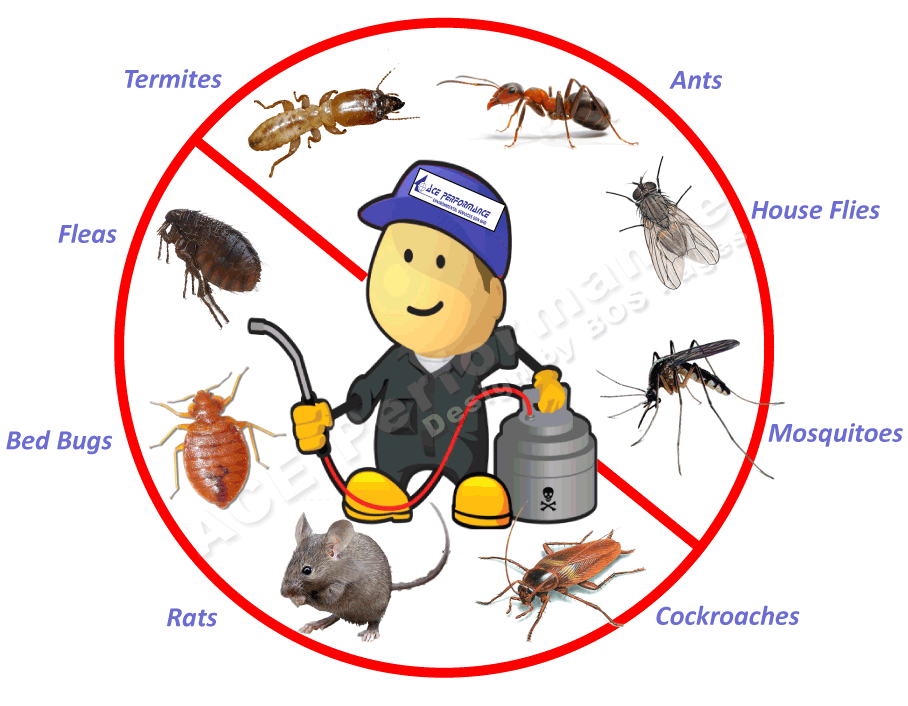As someone who loves gardening, one of the most satisfying experiences is seeing the flora you cultivate flourish and grow abundantly. However, the peaceful allure of a carefully maintained garden can quickly be disrupted by the presence of unwanted critters. Whether Pest Control Service Queen Creek nibbling on your roses or hungry caterpillars the produce in your garden, being equipped to handle these unwanted visitors is essential for ensuring a flourishing garden. In this guide, we'll explore strategies for pest management that shield your plants while maintaining your garden eco-friendly.
Recognizing the common pests that target gardens and how they behave is the initial step in stopping infestations. Many gardeners opt for natural pest control solutions that are harmless for both the flora you tend to and pollinators. By adopting the appropriate techniques, you can relish the charm of your garden without the concern of pests taking over. In the following sections, we will explore different techniques to ensure your plants are healthy and thriving, guaranteeing your garden remains a place of happiness throughout the seasons.
Crucial Pest Management Strategies for Horticulturists
To cultivate a thriving garden, it is important to implement effective pest control strategies that shield your vegetation while reducing harm to the natural balance. Commence by encouraging beneficial insects such as ladybugs and lacewings, which instinctively combat typical pests. Planting flowers like marigolds and nasturtiums can draw in these helpers and provide a organic balance. Additionally, consider incorporating companion planting, where particular plants are grown closely in proximity to repel specific pests.
Regular checking of your crops is vital for prompt identification of pest concerns. Check your garden often for signs of infestation, such as chewed leaves or yellowing foliage. Prompt action can prevent a tiny problem from becoming into a more significant one. If you detect pests, use a mild soap solution or neem oil as a eco-friendly treatment option. These treatments are successful yet non-toxic for most beneficial insects when used properly.

Proactive measures are crucial to holding pests at bay. Changing crops each season can break pest cycles and lower the likelihood of pest issues. Additionally, upholding healthy soil through organics and mulching enhances plants, making them less susceptible to pest attacks. Make sure that you are moistening correctly and only as needed, as overwatering can invite pests like slugs and snails. By following these essential tips, you can create a healthy and prosperous garden devoid of detrimental pests.
Natural and Environmentally Friendly Strategies
When it comes to addressing pest control in your garden, many gardeners are looking for methods that are not only efficient but also safe for the environment. One of the simplest ways to deter pests is to promote useful insects that prey on them. Ladybird beetles, hover flies, and parasitic wasps are great allies in the struggle against typical garden pests. By planting a varied range of blooms and herbs, you can draw these helpful insects and establish a harmonious ecosystem that minimizes pest issues.
Aromatherapy oils are an additional powerful tool in natural pest control. Oils such as peppermint, lavender, and tea tree are famous for their pest-repelling properties. Mixing a few drops of these oils with water and a little amount of detergent can create an effective spray that helps keep away unwanted garden visitors. Be sure to try any spray on a limited area of your plants first to ensure there are not any negative effects. Frequent applications during high pest season can significantly reduce infestations.
Lastly, incorporating physical deterrents can provide an eco-friendly solution to pest problems. Floating row covers, mesh, and even basic handpicking can protect your plants free of the use of chemicals. These methods are particularly effective against greater pests like caterpillars and beetles. Ongoing maintenance, such as removing debris and ensuring plants well-kept, also plays a crucial role in minimizing pest attraction in your garden. Together, these natural solutions can create a flourishing garden that stays pest-free while being gentle on the planet.
Seasonal Control Methods
The spring season is a vital time for pest control, as increased temperatures awaken dormant insects. To protect your garden, begin by carrying out a thorough check of your plants for initial signs of pests like aphids or caterpillars. You can utilize eco-friendly pest mitigation solutions such as neem oil or insecticidal soap to manage infestations before they escalate. Additionally, keeping https://articlescad.com/pest-prevention-creating-an-uninviting-environment-18591.html and ensuring adequate air circulation can impede pest growth. Consistently clearing out debris and dead plant material also aids reduce possible breeding grounds for damaging insects.
As summer rolls in, the temperature brings a different set of issues. Biting insects and sugar ants can become especially troublesome during this season. To keep these pests at bay, think about using pest deterrents and traps specifically made for them. You can also bring in helpful insects like ladybird beetles and lacewings to your garden, as they feed on common pests. Make sure that stagnant water is removed to reduce breeding of mosquitoes and maintain consistent garden upkeep to deter pest invasions.
When the autumn season arrives, pests begin seeking shelter from the cold, making it essential to pest-proof your garden and home. Close cracks and crevices around windows and doors to prevent entry. Within, store food in airtight containers to deter rats and pantry pests. Pay close attention to your garden, getting rid of spent plants and debris that could attract wintering insects. By applying these tactics throughout the months, you can maintain a flourishing garden and protect it against unwanted pests year-round.
